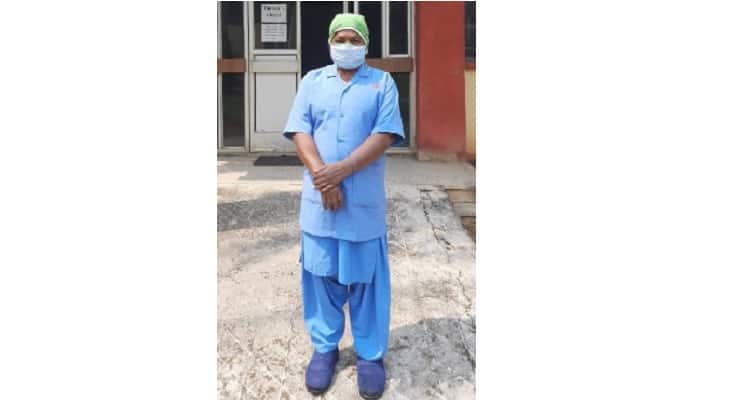Rohini Sardar, a nurse at The Leprosy Mission Hospital in Purulia, West Bengal says that while nurses are holding their head high and holding the fort in a COVID-ravaged nation, they need people’s support more than ever
How much anguish do you feel when you are declared a threat to the society and ostracised, just because you are dealing with patients with an infectious disease? What do people go through when they are blamed for spreading the virus, just because they work as a nurse, arguably the noblest profession? How much willpower does it take to serve COVID-infected patients for 16-18 hours every day and be a witness to their concerns and panic? A lot.
Battling fear, stigma and a strong enemy
Nurses in our country have been going through a lot ever since the pandemic stealthily reached India’s shores in early 2020. A flood of patients in need of critical care, long hours of work, separation from loved ones, fear of contracting the virus—the nurses have braved all this. Official figures suggest that about 120 nurses passed away fighting the first wave of COVID-19 infection, which they contracted while doing their job. Many other nurses like me got infected, but they recovered well and resumed work, sometime against the wish of their families. The aggression of the pandemic was no match for their grit and resilience.
What unfolded during the second wave, however, was unprecedented. The more virulent strain created renewed dread, brought families of the patients to their knees and left a palpable sense of helplessness. But what the second wave of COVID-19 could not do was to breach the first line of defence: the nurses. Yes, they are tired; yes, stress crossed the threshold for some; yes, they are exhausted to the hilt—but they are also battle-hardy who refuse to succumb.
Allow me to cite my example. I am Rohini Sardar, a nurse at The Leprosy Mission (TLM) Hospital in Purulia. I have been serving the hospital since the early 90s. Stigma and fear around leprosy is much older than COVID-19. Even today, in some pockets of the country, leprosy patients are feared and looked down upon. But for more than two decades, I have been dressing the wounds and complicated ulcers of the leprosy patients who often have no one to count on after their family abandons them.
For me, this ostracisation is not new. Much before I graduated into a nurse, I had lived the feeling of being isolated and cast away when I myself contracted leprosy and came to the same hospital for treatment. Instead of slipping into depression and low self-esteem, I used my first-hand experience of a lonely battle as an inspiration to answer to a higher calling—be care providers for those who, like her, must fight this battle alone—bereft of family and friends.
Ignoring personal inconvenience for others

But are people grateful to those who compromise safety of their family members to save lives of their “extended family”? Are they mindful of the battles we fight at an individual level? Perhaps not. Let me explain.
There exists threat of new mutants of the COVID-19 virus, and hence, fresh surge in infections. Experts believe that we can stop the virus from striking again by guarding ourselves. Failure on that front is cited as one of the major reasons why the second wave proved much worse. Still, people complain about having to wear a mask and grudgingly start maintaining distance when police and other authorities take punitive actions. We are appalled at this nonchalance. We feel like telling them, “we uphold our values and carry out our professional responsibilities; you should carry out your social and moral responsibilities, too.”
Wearing personal protective equipment (PPE)—mask, face shield, gown and gloves—is not the most comfortable of experiences, especially in sub-tropical weather. It does not make life any easier for us nurses as well. The quality of patient-nurse relationship, which hinges upon face-to-face communication and human touch, is affected in the presence of strict safety protocols, especially at a time when COVID-19 patients are prone to feel isolated from their family. As nurses, we are still trying to fill this gap. I see reports and videos of nurses cheering up the patients by breaking into random entertaining acts. We are going out of our way to heal them!
For once, let us not hold our convenience dearer and be grateful to the kindness of nurses who disregard every inconvenience coming their way. Let us try to protect those who are trying so hard to keep us and our family safe. I am sure you do not want to lose warriors like us to thoughtless flouting of safety norms. For once, let us prove the profound words of Anne Frank wrong: “Dead people receive more flowers than the living ones, because regret is stronger than gratitude.”
(Additional inputs and translations by Subhojit Goswami, Senior Program Manager – Advocacy & Communications, The Leprosy Mission Trust India)
- Advertisement -


